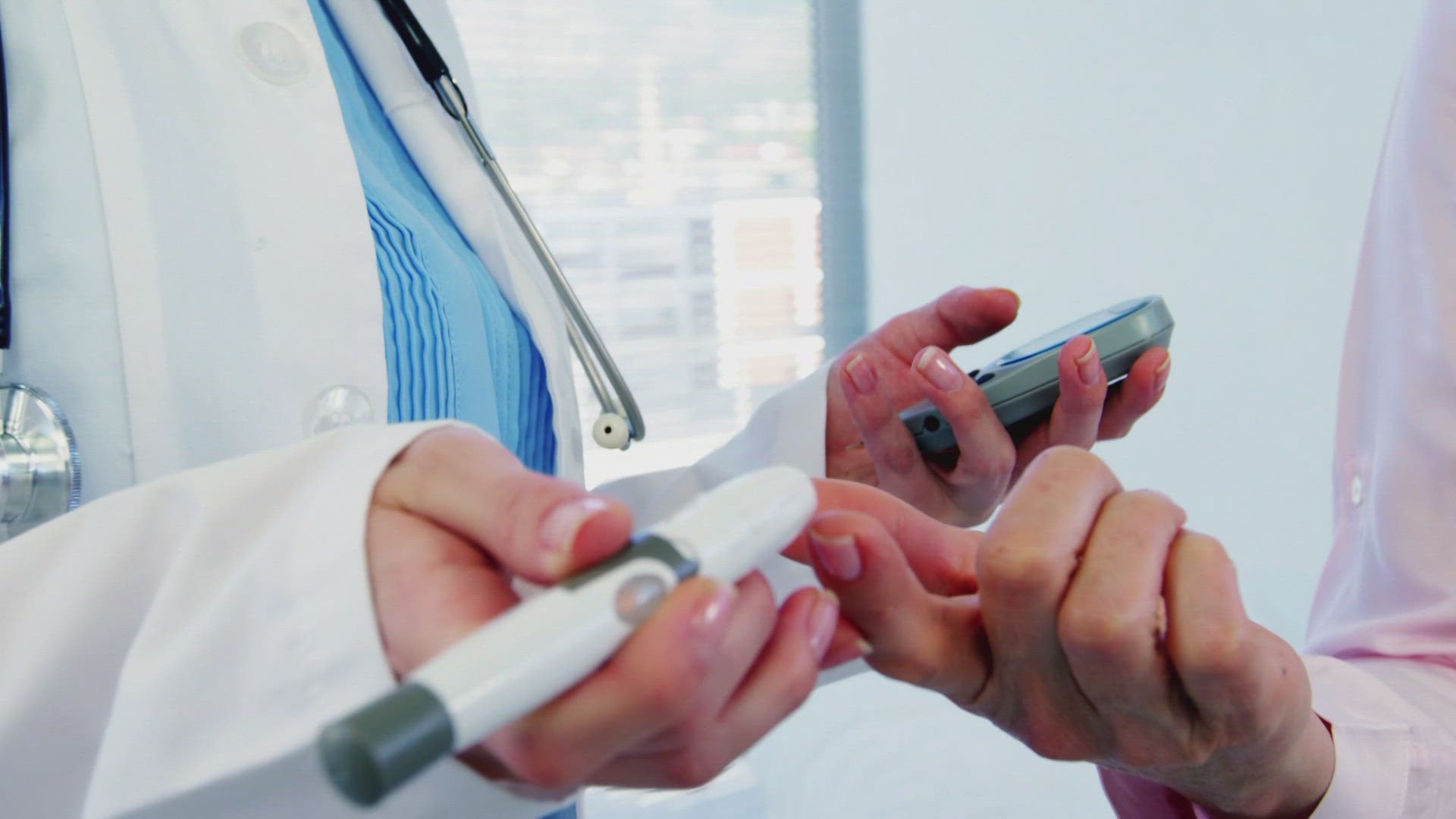HOUSTON — Diabetes continues to be a growing health concern worldwide.
In the United States, nearly 37 million Americans are living with Type 2 -- it's about 95% of cases.
KHOU 11 News anchor Rekha Muddaraj spoke to an endocrinologist with UT Physicians about the chronic disease and what to look out for.
"Most of the time if you have Type 2 diabetes, you'll have Type 2 diabetes for life," Dr. Hongje Zhang said.
Zhang said adult-onset diabetes is the body's inability to properly regulate blood sugar levels. It's a chronic disease that can cause major health problems.
"Can cause blurred vision, damage the back of your eyes, blindness, kidney (problems), circulation (issues), increased risk of heart disease and strokes, can cause nerve damage, people can have amputations," Zhang said.
Prevention is always the best medicine.
"If you're able to lose weight, 5% to 10% of your current weight, that will significantly reduce the risk," Zhang said.
Genetics, along with lifestyle, also play a role. That's why she said an early diagnosis is key.
Possible signs of diabetes:
- Increase in thirst or urination
- Fatigue
- Blurred vision
- Numbness of tingling in hands or feet
- Unexplained weight loss
But, not everyone has the same tell-tale signs.
"Some diabetic patients don't have any symptoms so it's very important to get your blood sugar checked early," Zhang said.
Risk factors include being overweight, over the age of 35 and family history.
"African Americans, Asian Americans, Native Americans, Latino Americans are at a higher risk of diabetes," Zhang said.
While medication is just one part of the treatment, a major lifestyle change includes diet.
"I'm never going to say to someone, you can't have rice anymore. Nine times out of 10, it's the volume that's the issue and the balance," Zhang said.
Registered dietician Katherine Gerber said a balanced diet goes beyond avoiding sugar.
"Vegetables provide good fiber, nutrients, they are low-calorie. Balance with lean proteins, of course, ideally, a fibrous carbohydrate," Gerber said.
Despite the possible complications, health experts want to reassure people at risk of Type 2 diabetes that it's both a controllable and treatable disease.

